Imagine retiring to a sun-blessed European country with beautiful beaches, picturesque landscapes, and a relaxed lifestyle.
Portugal is a country that matches your image perfectly, a country with a rich history, diverse culture, and warm, friendly locals.
Secure Peace of Mind with Best-Value International Health Coverage
International Citizens Insurance provide free, no-obligation quotes from the leading international health insurance providers with plans tailored to meet your needs. Trusted by thousands of expats worldwide.
It's no wonder that Portugal has become such a hot spot for retirees from around the world and features high in the list of the best places to retire globally.
Portugal's appeal to retirees extends well beyond its weather and natural beauty.
The country offers a high standard of living at a comparatively lower cost than other Western European countries.
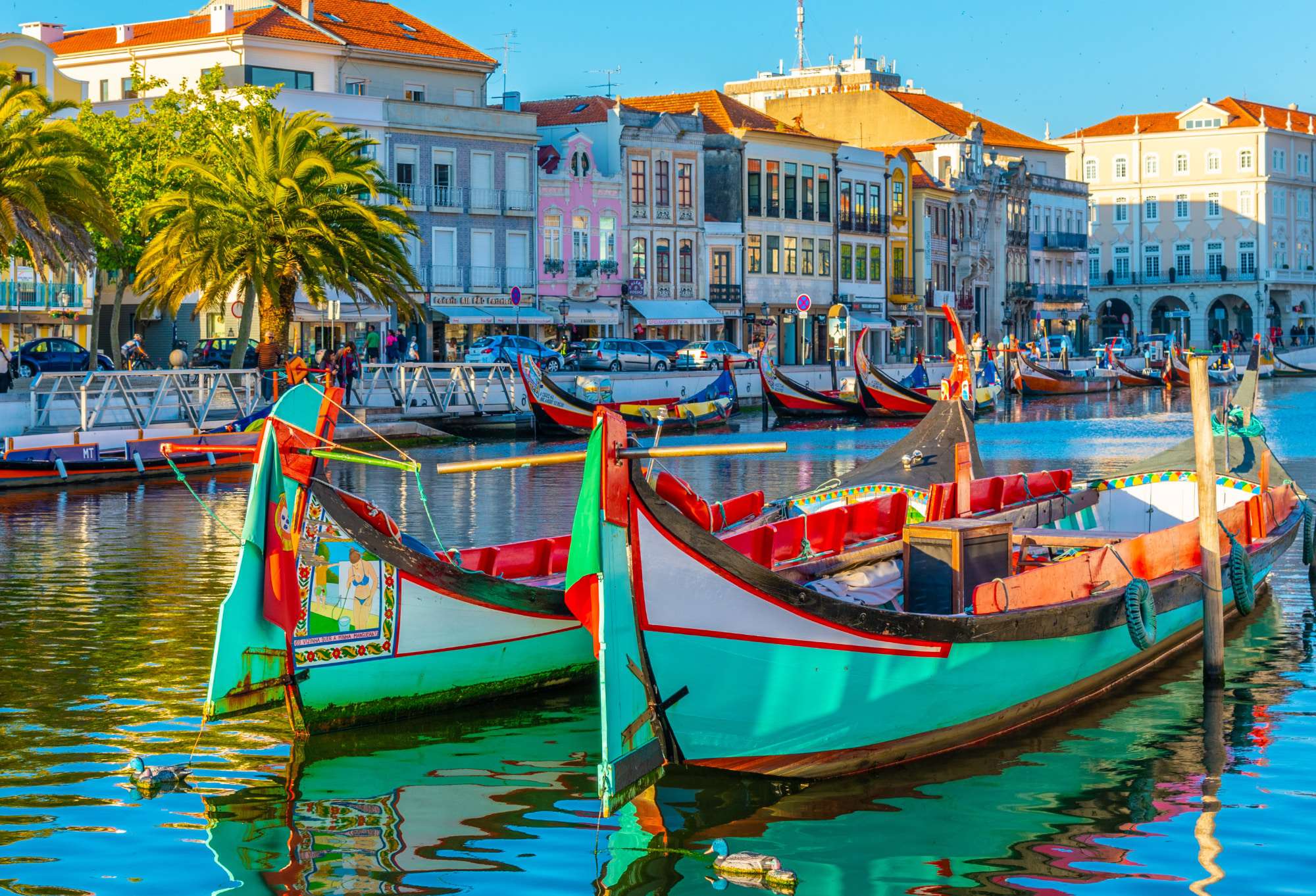
This is an alluring combination for anyone looking to stretch their retirement savings while enjoying life to the fullest.
Healthcare is another major factor in Portugal's favor. The Portuguese healthcare system is highly rated, providing excellent care at affordable rates.
With a mix of public and private options, retirees will find accessing the medical services they need straightforward.
The Algarve region, in particular, is very popular among retirees. Known for its stunning coastlines, golf courses, and warm climate, Algarve offers a serene environment perfect for an enriching retirement.
But don't worry if beach life isn't for you. Portugal has plenty of charming towns and lively cities to choose from.
So, if you're considering retiring abroad, Portugal could be your perfect destination.
In the following sections, we'll delve into the specifics of what you need to know before making the move. From cost of living to healthcare to the best places to live, we've got you covered.
Obtaining residency in Portugal: a step-by-step guide for non-EU citizens
Getting residency in Portugal can be a straightforward process, but being prepared is essential.
We're going to look at the easiest and cheapest way to retire to Portugal first via a D7 Visa, by far the most popular choice for US, UK, and other non-EU citizens.
Below, you'll find a comprehensive step-by-step guide to help you quickly navigate this journey.
Step 1: check you're eligible for residence via a D7 retirement visa
Having a D7 retirement visa isn't just ideal for residency in Portugal. The visa comes with fabulous perks that non-EU residents love.
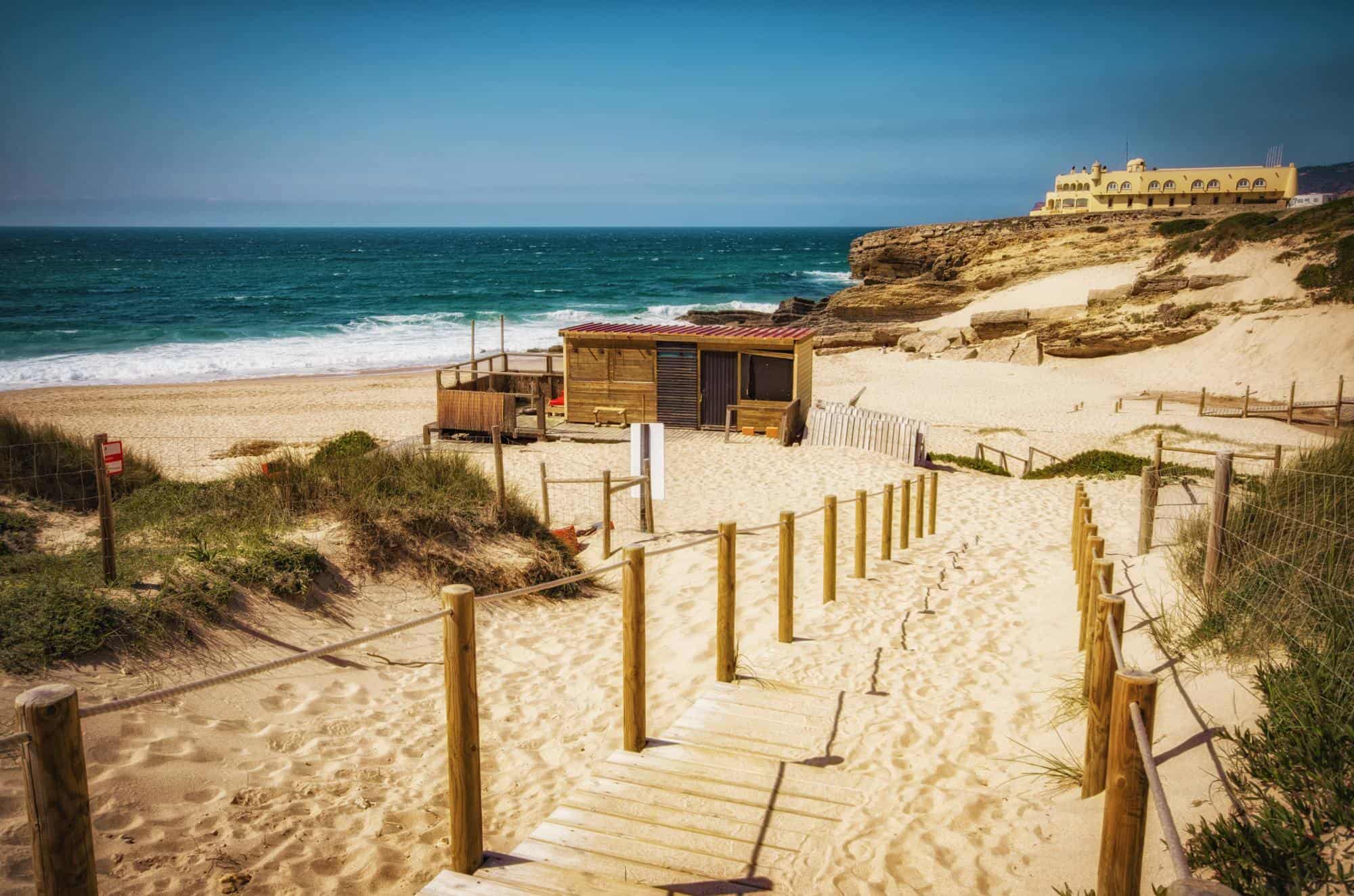
You'll be able to jet off to any European destination at a moment's notice, with no visa hassles to dampen your wanderlust.
There's more! After five years, you could be eligible to apply for Portuguese citizenship and a passport, catapulting you into full EU citizenship and all of the possibilities that come with it.
Now we're not immigration professionals; we strongly recommend you seek qualified advice before committing. This is intended as an informational overview.
D7 visa eligibility
- Be aged 18 or over (not usually a problem for retirees)
- Be a non-EU/EEA national (US, UK, Canadian, etc.)
- Meet passive income requirements (see below)
- Meet the minimum residency requirement (you must spend 16 months of a 24-month period in Portugal)
- Have a clean criminal record.
- Have a NIF (Portuguese fiscal number - form of ID)
- Have a Portuguese bank account
- Be willing to become a Portuguese tax resident
Passive income requirements
You can't work in Portugal. You have to demonstrate that you can pay your own way.
You'll need an annual passive income of €8,460 if you're by yourself or €12,690 if you're coming over armed with a spouse. At the time of writing, that is approximately $14,000 USD per annum or $1,170 per month for a couple.
What qualifies as passive income
We're in immigration expert territory now, so check this one out before you buy any plane tickets.
- Your pension, state or private
- Income from real estate you own
- Dividends or profits from investments you have
- Royalties - great for rock stars and actors
- Business dividends, as long as it is not your business
- Interest on savings
Are you ticking all the boxes so far? Great!
Let's move onto the proving it stage
NIF and Portuguese bank account
You need these before your SEF residence interview in Portugal. You need the NIF before you can apply for a bank account.
This can create a chicken or egg scenario as it's issued in a Portuguese tax office, and you're still in your home country. You don't have to fly out just for this. You can nominate a legal representative and give them power of attorney. They will then apply on your behalf.
When you have your NIF, you can apply to open a bank account. This can also be tricky, but there are Portuguese banks that allow you to open an account online.
Step 2: gather every document you can find
For the application, you'll need: your passport, proof of income (including pensions), proof of health insurance, criminal record certificate, and a Portuguese address.
If the documents aren't in Portuguese, you will need to ensure that they are translated into Portuguese by a certified translator. You will need to submit both the original and the translated documents together.
Proof that you have that all-important passive income is vital. Any documents you have that can bolster your proof of income should be included.
Bank statements, savings statements, investment documents, pensions, and anything else that demonstrates that you can pay your own way!
Step 3: submit your application with a cover letter
The application for a D7 visa involves two stages. Firstly, you’ll apply for the D7 residency visa itself from within your home country at your local Portuguese embassy or consulate.
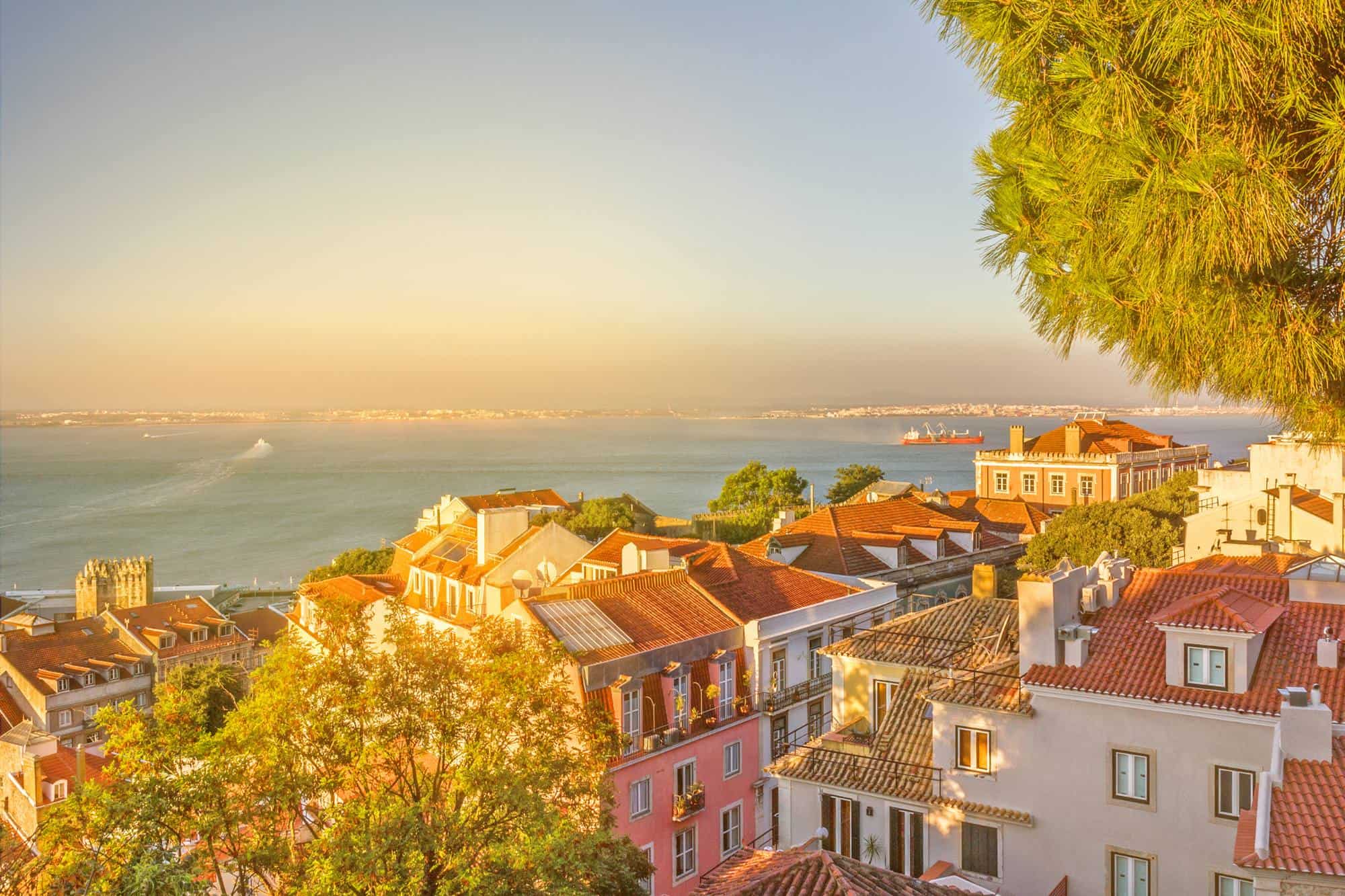
You can do all of this by yourself, but a legal expert could make the whole process much less daunting, especially if you're not fluent in Portuguese.
The cover letter is very important. You have the opportunity to clarify your intentions and reasons for wanting a visa. A well-written letter (in Portuguese) can go a long way.
Don't submit until it's less than three months before you plan to travel to Portugal. You'll receive a stamp in your passport valid for 120 days.
It's time to book flights!
Step 4: travel to Portugal: attend your SEF appointment
If you know your travel dates, it's possible that your home country's Portuguese embassy or consulate will book an appointment on your behalf. If not, you'll need to do it when you arrive in Portugal.
Double check you've got all of your supporting documents. You don't want to fall at the first fence.
At your appointment, be prepared for fingerprinting. The appointment should only be around 30 minutes, but it's best to be prepared for a wait.
Step 5: await approval
You'll receive an approval letter once your application is accepted, usually within two weeks.
Congratulations! You are now officially a resident of Portugal.
What about a Golden Visa?
At the time of writing, the current Golden Visa system is just about to end (July 23); previously, you could invest in real estate, i.e., buy yourself a home, and that would qualify you for a Golden Visa.
It's not been fully confirmed yet, but we think there will be Golden Visa opportunities but only for people who have money to invest in things other than real estate. If you have 500,000 euros to invest in a Portuguese business or make a donation to government-recognized scientific research or the arts, you may be able to get a visa.
For most people, the D7 route is the way to go, but of course, if you are an experienced investor and feel comfortable investing directly into projects in Portugal, there are professional experts who can advise you.
The cost of living In Portugal
Portugal has long been a favorite destination for retirees, primarily due to its affordable cost of living. It strikes an excellent balance between a high quality of life and lower living expenses compared to much of Europe.
The basics
Everyday costs such as groceries, utilities, and public transportation are typically lower than in North American or Northern European countries.
Eating out or enjoying a glass of local wine won't break the bank, either.
Housing
The cost of housing varies greatly between different areas of Portugal. Cities like Lisbon and Porto are more expensive, yet still cheaper than many European capitals.
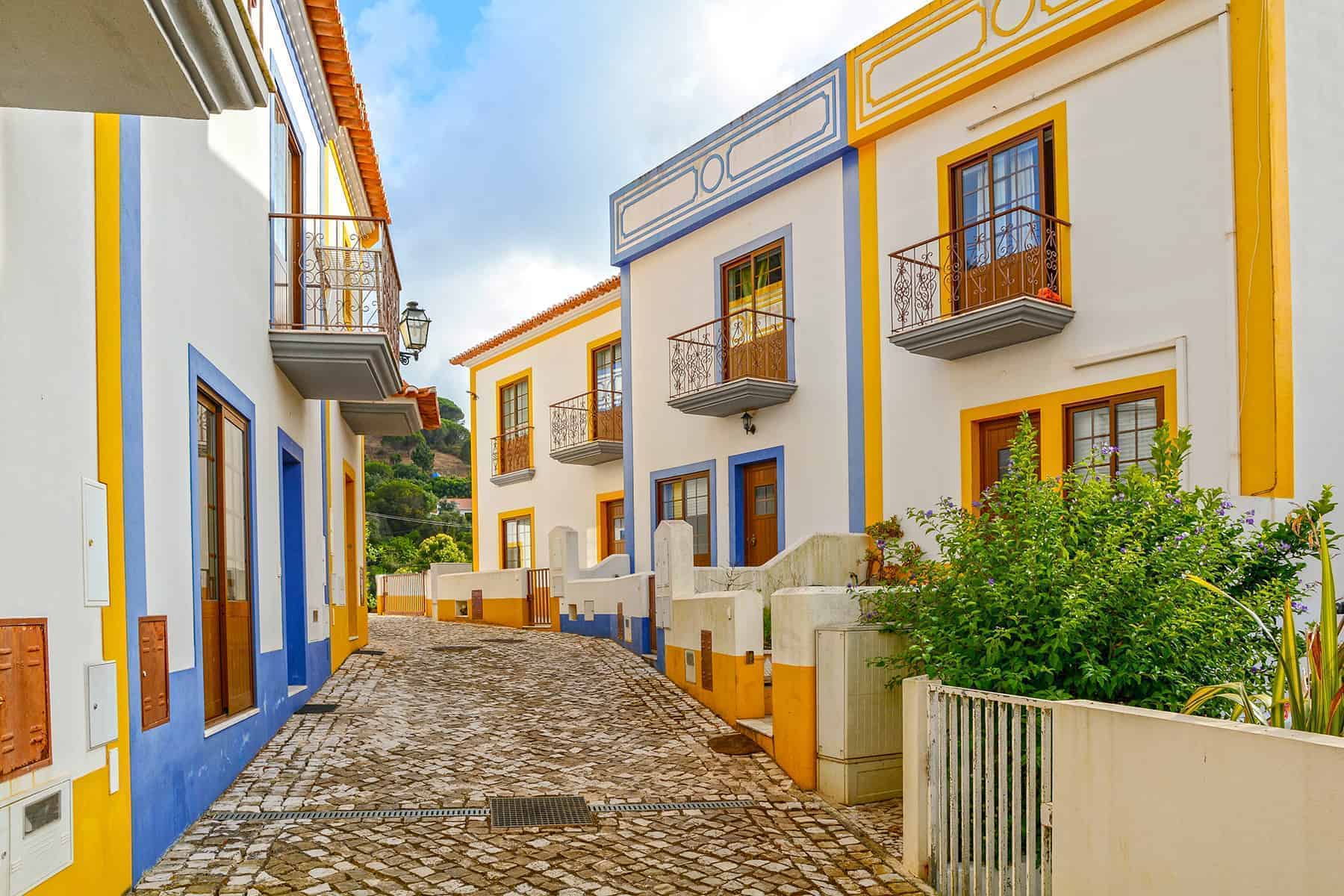
However, if you venture into the country's charming rural areas, you'll find homes at a fraction of the cost.
Healthcare
Public healthcare in Portugal is affordable and of high quality, although it can be slow. Many expatriates choose to take out private health insurance, which is also reasonably priced.
Transportation
Portugal's public transportation system is reliable and inexpensive. Owning a car can be costly, but isn't necessary unless you live in a rural area.
Here's a rough breakdown of some common costs:
| Item | Cost (in Euros) |
|---|---|
| Rent for a 1-bedroom apartment in the city center | 800-1200 |
| Meal for two at a mid-range restaurant | 40-60 |
| Monthly public transport ticket | 40-50 |
| Monthly utility bill | 120-160 |
| Private health insurance | 50-120 per month |
Remember that these are average costs, and actual expenses can vary depending on your lifestyle and location.
Finances and taxes: navigating the Portuguese system
Just as in any country, taxes can get complicated, especially if your individual circumstances are complex.
We strongly recommend you seek professional qualified tax help if you need advice. This is just an overview to help get your retirement planning underway.
Income tax for retirees in Portugal
Portugal used to offer a beneficial tax regime for foreign retirees under the Non-Habitual Resident (NHR) status, but it is not available any longer.
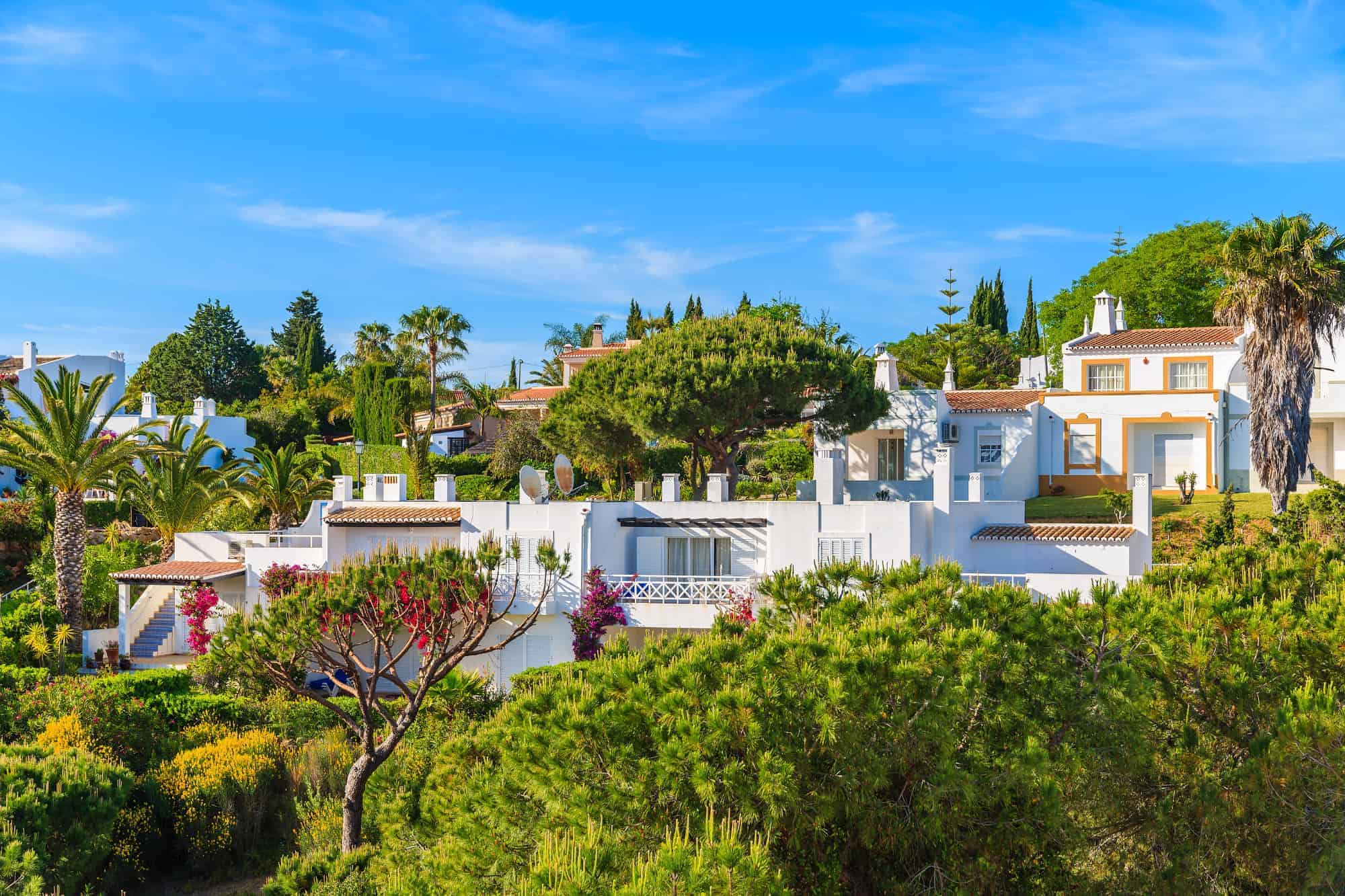
As a retiree, you will pay your income tax at a current progressive scale rate.
You can find more information on it in our guide, Comprehensive Guide To Taxes In Portugal.
Banking in Portugal
Setting up a bank account is a straightforward process in Portugal. All you'll need is a valid form of identification, proof of address, and a fiscal (tax) number.
Most Portuguese banks offer online banking, making it easy to manage your finances from the comfort of your new home.
Property taxes in Portugal
If you plan to buy property in Portugal, you'll need to be aware of property taxes.
There's the Municipal Property Tax (IMI), which is based on the property's fiscal value, and the Property Transfer Tax (IMT), which is paid when purchasing a property.
Tips for navigating the financial system
- Get professional help: Navigating a new tax system can be complex. It's recommended to seek help from a tax professional well-versed in the Portuguese system.
- Plan ahead: Be sure to budget for your new cost of living and any potential tax liabilities.
- Stay informed: Tax laws can change, so it's important to stay updated on any changes that may affect your finances.
With some planning and preparation, the financial aspect of retiring to Portugal can be managed relatively easily. Once you've got all the essentials in place, you can kick back and get on with your retirement.
Healthcare: understanding the system and your options
When it comes to healthcare, Portugal offers both public and private options. It's essential to understand how each operates, allowing you to make the choice that best meets your healthcare needs and budget.
So, let's dive in!
The Public Healthcare System: Serviço Nacional de Saúde (SNS)
The Serviço Nacional de Saúde (SNS) is Portugal's public healthcare system, providing free or low-cost healthcare to all residents. However, it's important to note that while the quality of care is generally good, wait times can be long.
- Eligibility: To access SNS, you must be a legal resident and registered with a local health center.
- Cost: While many services are free, there are nominal fees for certain procedures and medications.
- Insurance: The SNS does not require insurance, but having additional coverage can help with costs not covered by SNS.
The private healthcare system
If you want the peace of mind of quicker access or more personalized care, the private healthcare sector in Portugal is a viable option.
This sector is well-regarded, with many English-speaking doctors and modern facilities.
- Eligibility: Anyone can access private healthcare, but costs can be high without insurance.
- Cost: The cost of private healthcare varies widely, from affordable to expensive, depending on the treatment.
- Insurance: Most expats opt for private health insurance to offset the cost of private healthcare.
Choosing your healthcare plan
The decision between public and private healthcare largely depends on your personal needs and circumstances. It's always a good idea to compare services, costs, and coverage to determine the best fit for you.
If you are opting for international health insurance, to make sure you get the best value for money, compare international health insurance options from various providers to find the best deal.
Remember, healthcare is a critical factor when retiring to any country. In Portugal, whether you opt for the public SNS or the private sector, you can expect a high standard of care.
Real estate: buying or renting a home in Portugal
So, you're considering taking that big step and moving to Portugal. Let's discuss one of the foremost decisions you'll need to make: should you buy or rent a home?
Buying a home:
Buying a home in Portugal has its advantages. It gives you complete control over your living space and can be a solid investment. However, it's a significant financial commitment and requires an understanding of the local real estate market.
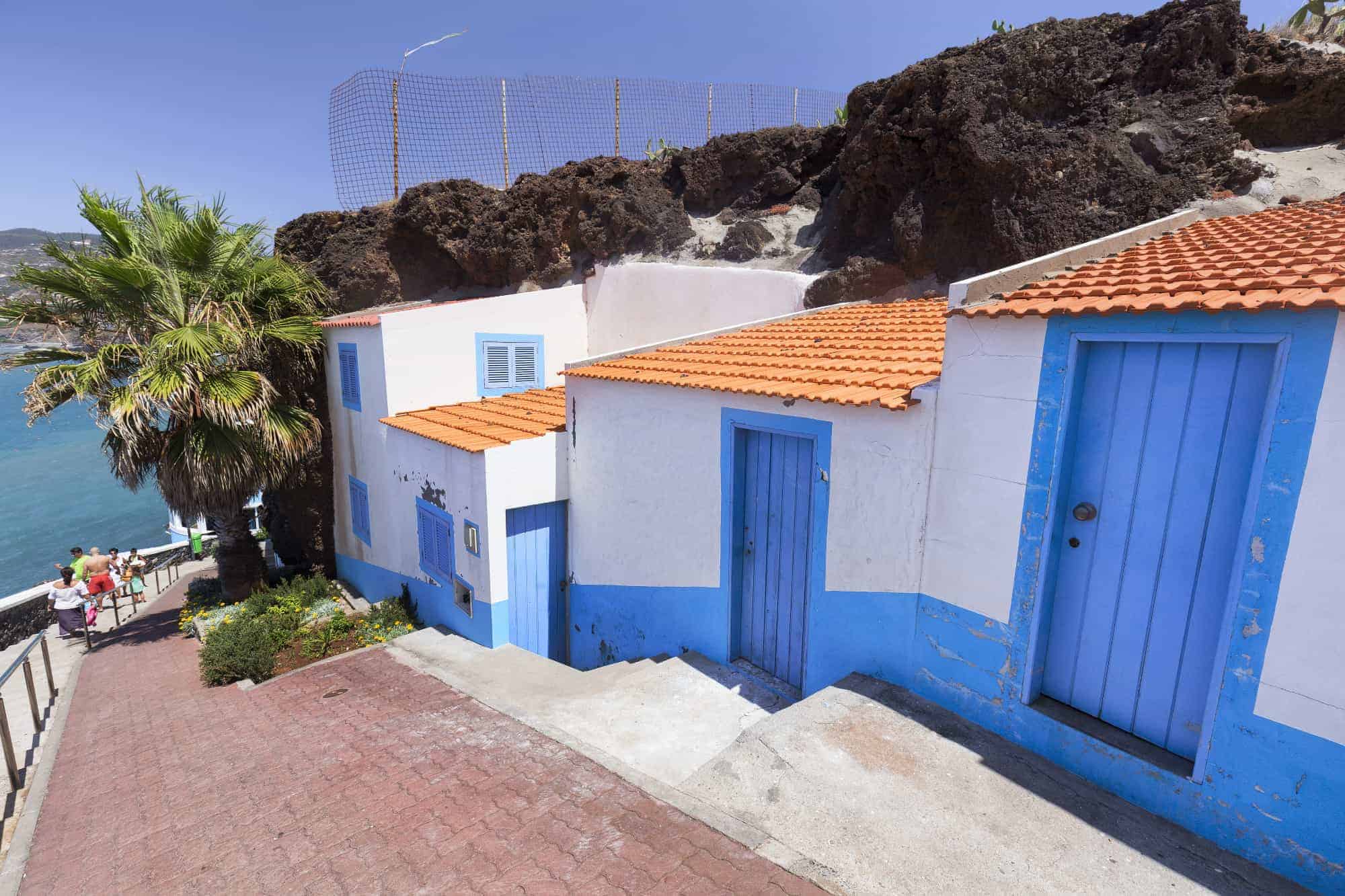
- Market research: Research the real estate market in your desired area. You'll find plenty of property websites to start your research. Get a feel for prices in each location and any pros and cons for a specific area. Local expat Facebook social groups can be really helpful.
- The buying process: After finding a home you're interested in, you'll need your NIF, local bank account, and a lawyer to handle the legal paperwork.
- Costs: Be prepared for additional costs such as stamp duty, legal fees, and property transfer tax.
Renting a home:
If you're not ready to commit to buying, renting a property in Portugal is a great option. In fact, if you've never lived abroad before, it's the perfect way to start.
You'll be able to experience different areas of Portugal and make sure it is right for you before you settle down permanently.
- Rental websites: Websites like Idealista and Portugal Rental Property will help you research your options.
- Lease agreements: In Portugal, lease agreements are typically for one year, with an option to renew.
- Costs: Expect to pay a security deposit (usually one month's rent), the first month's rent upfront, and, potentially, a realtor's fee.
Whether you decide to buy or rent, it's essential to understand your rights and responsibilities as a tenant or homeowner in Portugal.
Brushing up on the local housing laws can save you from future headaches!
Culture shock: adjusting to life in Portugal
Embracing the Portuguese lifestyle can be a thrilling journey as well as a bit of a culture shock. You will have to make some adjustments, and you're almost certainly going to miss some familiar comforts of your home country.
Let's look at some of the adjustments you'll need to be prepared for.
The Portuguese pace
Life in Portugal is more laid-back and operates at a slower pace. It's a stark contrast from the blind rush many of us are used to.
Embrace the change; it's one of the reasons why you chose to retire to Portugal.
A new language to learn
While English is widely spoken in tourist areas and among younger generations, learning Portuguese is crucial for a fulfilling life in Portugal.
The local community will appreciate your efforts, and it will open doors to deeper cultural understanding and connections.
The importance of family
Portuguese people place a strong emphasis on family. It's common for multiple generations to live under one roof or at least in close proximity. Be prepared to experience a lot of this family warmth and connection in your everyday life.
Fondness for tradition
Portugal is a country that cherishes its traditions. From annual festivals to daily rituals like the afternoon 'lanche' (snack), appreciating these customs will ease your integration and build a sense of belonging to your new community.
Language learning: tips and tricks for mastering Portuguese
There are few things as personally rewarding and enriching as mastering a new language, and your retirement to Portugal presents the perfect opportunity.

Learning a new language doesn't need to be daunting, especially in retirement when there are no exams to worry about, just the joy of finally understanding your new neighbors.
Here are some tips to get you on the way!
Start small and steady
Begin with simple phrases and everyday vocabulary. Use them in conversations as much as you can. Practice makes perfect, and you'll be building up your confidence for bigger things as your vocabulary develops.
Make technology your ally
Use language apps like Duolingo, Babbel, or Rosetta Stone. These apps are designed to make language learning enjoyable and convenient.
Immerse yourself in the culture
Watch Portuguese movies, listen to local music, or read books in Portuguese. This cultural immersion will make the language seem less foreign and more familiar.
Join a language course
Find a language school or enroll in an online course. Having a structured learning environment can be very helpful.
Practice with locals
Don't be shy—speak Portuguese as much as you can with the locals. They're usually patient and appreciate your efforts to learn their language.
Be bold - don't fear mistakes
Mistakes are part of the learning process. Every error is an opportunity to learn and improve.
And finally…
Be patient with yourself. Language learning is a journey, not a race.
Mastering Portuguese will not only make your life in Portugal more comfortable, but it will also open doors to a deeper understanding of Portuguese culture and traditions.
So, dive in head-first and embrace your fantastic language learning opportunity.
Social life: finding your community in Portugal
Are you ready to dive into the lively social life Portugal has to offer?
Retiring to Portugal gives you the perfect opportunity to make new friends and immerse yourself in an exciting mix of cultures.
The key is knowing where to look and how to get involved.
Local meetups
One of the quickest ways to build your social circle is by attending local meetups. These gatherings, often organized around shared interests, are a great opportunity to meet like-minded individuals while enjoying your favorite activities.
- Facebook groups are a good place to start. You can find groups in your location before you make the move.
- If you love literature, look out for book clubs in your area. There are plenty.
- If you love the outdoors, you'll find no lack of hiking and adventure clubs.
- Sports clubs, from sailing to golfing as well as having a great day out, you'll soon be making new friends.
Volunteering opportunities
If you're looking to give back to the community while making connections, volunteering can be an excellent choice.
Many organizations welcome expats who want to contribute their time and skills. It's another great way to meet locals and fellow expats alike.
Language exchange groups
Joining a language exchange group can be a smart move if you're working on your Portuguese.
The groups provide a relaxed and supportive environment to practice the language. You'll also have the chance to teach others your native language, making it a win-win situation.
Remember, the key to a rich social life in Portugal is being proactive and open to new experiences.
Whether you're joining a local meetup, volunteering, or swapping languages, you're sure to find your community in Portugal.
So, don't be shy. Put yourself out there, and before you know it, you'll be living la vida local!
Travel: exploring Portugal and beyond
Portugal, a land rich in history and diverse landscapes, is the ultimate retiree's path to discovery. From sun-drenched beaches to charming villages, Portugal offers a multitude of exploration opportunities.
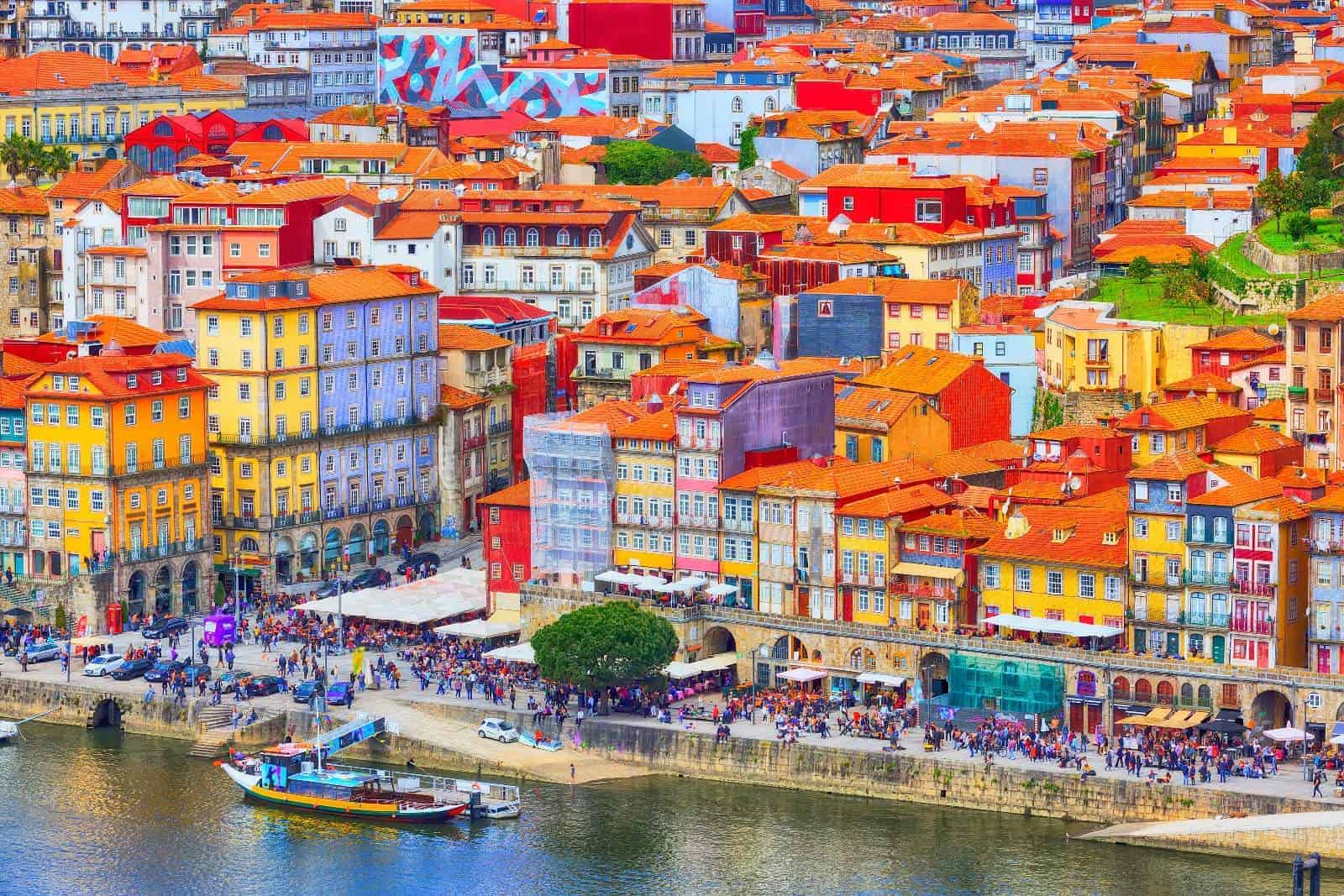
Plus, its strategic location opens doors to further European travel.
Exploring Portugal
Each region in Portugal paints a different picture. The sun-kissed Algarve is home to golden beaches, crystal-clear waters, and world-class golf courses - a perfect relaxation spot.
For culture enthusiasts, the cities of Lisbon and Porto offer steep, winding streets, intricate tilework, and delicious gastronomy.
- Lisbon: Explore the historic Alfama district, visit Belem Tower, or take a tram ride up the hills.
- Porto: Walk across the Dom Luís I Bridge, visit the historic Ribeira district, or indulge in some Port wine tasting.
Portugal is an enchanting treasure chest that extends beyond the pages of this guide. As a new resident, you'll have the time to delve into the country's hidden gems.
Discover the captivating and less-explored UNESCO sites nestled in the quaint medieval towns of Alcobaca, Batalha, and Coimbra.
Why not take a few days to explore the Douro Valley and sample some of the splendid wines in Peso da Regua or the picturesque Baroque city of Lamego?
Head to the islands off Portugal to enjoy the best gastronomy, natural landscapes, and coastal activities - explore Madeira and the Azores.
Too many islands to choose from? Our guide on the best places to live in the Azores is a perfect place to research the most interesting island destinations.
You can rest assured you won't run out of beautiful sights to see in Portugal.
Traveling beyond Portugal
Your Portuguese retirement can also serve as a launchpad for further European exploration. Located at the westernmost tip of the continent, Portugal is within easy reach of Spain, France, Italy, and more.
- Spain: Just a hop away. Visit Seville’s magnificent cathedral or enjoy tapas in Madrid.
- France: A short flight away. Explore the romantic streets of Paris or the lavender fields of Provence.
- Italy: A bit further, but worth the journey. Discover the ancient ruins of Rome or the canals of Venice.
Retiring in Portugal means that you will have the rest of Europe at your doorstep, and with your residence sorted out, you won't need any visas to travel anywhere in the EU.
Retiring in Portugal with pets: what you need to know
If you're planning to make the move with a furry companion, you're in luck.
Portugal has an open approach to pets, making the process quite smooth. Let's explore what you need to know to ensure your pets feel as at home in Portugal as you do.
The basics: pet regulations
In Portugal, it's important to follow European Union (EU) regulations for importing pets.
This includes having a European Pet Passport, which is a document record of your pet's vaccinations and health. ISO-compliant microchipping is also mandatory, ensuring your pet is identifiable at all times.
Rules and regulations for bringing pets do change, and coming from some countries may also entail getting blood tests for your pet.
Research and verify the current regulations before setting off with your pet.
Traveling to Portugal with pets
When planning your travel, it's key to check with airlines about their pet travel policies.
Some airlines allow small pets in the cabin, while others require them to be transported in the cargo area. Always ensure your pet's carrier meets the airline's specifications.
The website PetTravel.com is a great resource to help with your planning.
Finding pet-friendly accommodation
While many places in Portugal are pet-friendly, it's crucial to confirm before making any bookings.
Look for listings that have a 'pets allowed' badge. If you're unsure, don't hesitate to reach out to the property owners or managers.
Veterinary care in Portugal
Portugal has a high standard of veterinary care, with numerous clinics and hospitals across the country.
Many vets speak English, making it easier to communicate your pet's needs.
Adapting your pet to Portugal's climate
Depending on where you're coming from, your pet may need time to adapt to the climate.
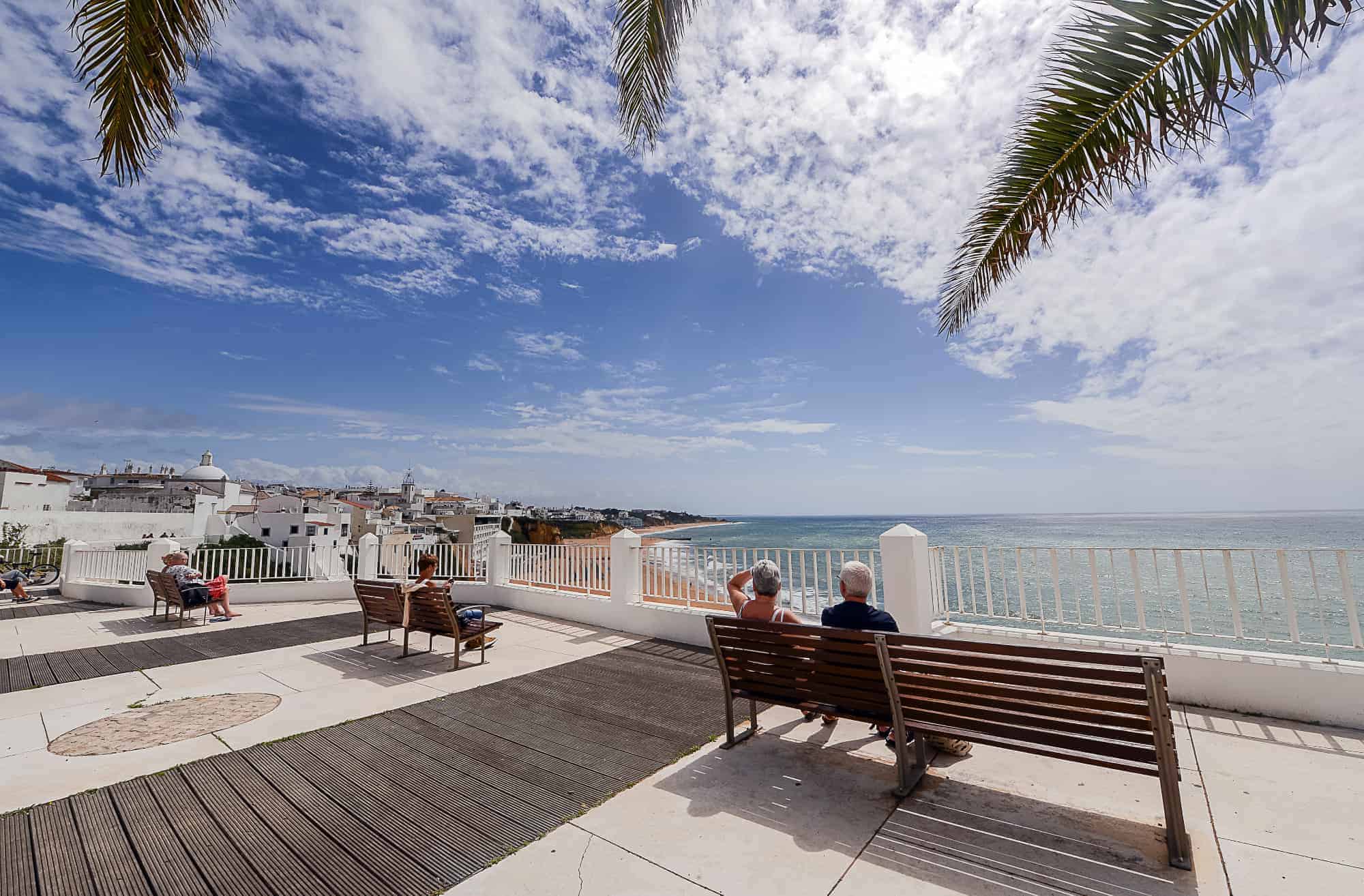
Portugal's climate is typically Mediterranean, which means hot summers. Make sure your pet can handle this change in environment.
Consider pet-friendly sunscreens and cooling mats for hot days. Take care not to take them for a walk when they could burn their paws on hot asphalt.
Final thoughts: is Portugal right for you?
For many of us, Portugal epitomizes the perfect retirement haven with its affordable living, laid-back lifestyle, diverse culture, and stunning landscapes.
But is Portugal right for you?
That ultimately depends on your individual desires and circumstances.
Consider your priorities. Is it the weather, the cost of living, healthcare facilities, or being part of a spirited expat community?
Portugal scores well on all these fronts. However, no place is without its downsides.
Bear in mind that while the cost of living is generally lower, wages in Portugal are also among the lowest in Western Europe.
This isn't a problem for retirees with a decent pension but could be a sticking point for anyone considering topping up their pension with some part-time work.
The language barrier might also be a challenge. While many Portuguese speak English, particularly in the cities and tourist areas, it's not as widely spoken in more rural areas.
Lastly, if you're accustomed to fast-paced city life, the slower pace of life in Portugal may require some adjustment.
We always recommend spending some time in Portugal before you decide to retire there to see if it meshes with your lifestyle and retirement goals.
You might find useful:
- Living In Portugal - Guide for Expats
- Best Places To Live In Portugal
- Living In Portugal After Brexit - a guide for British expats
Helpful external links:
- All about Portugal government services for foreigners - EPortugal Government Site
- Visas and residency types: Ministry of Foreign Affairs site
Secure Peace of Mind with Best-Value International Health Coverage
International Citizens Insurance provide free, no-obligation quotes from the leading international health insurance providers with plans tailored to meet your needs. Trusted by thousands of expats worldwide.



